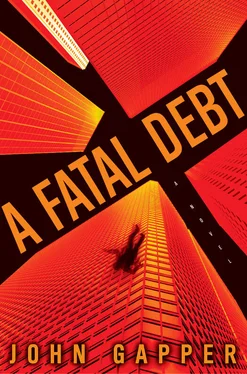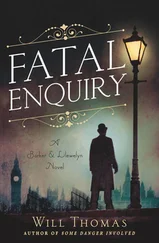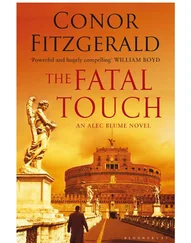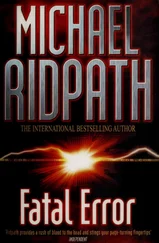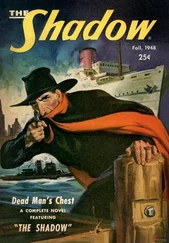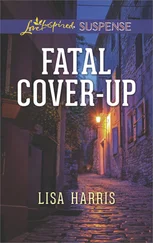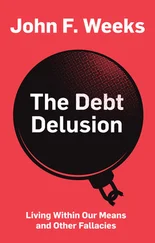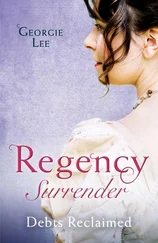John Gapper - A Fatal Debt
Здесь есть возможность читать онлайн «John Gapper - A Fatal Debt» весь текст электронной книги совершенно бесплатно (целиком полную версию без сокращений). В некоторых случаях можно слушать аудио, скачать через торрент в формате fb2 и присутствует краткое содержание. Жанр: Триллер, на английском языке. Описание произведения, (предисловие) а так же отзывы посетителей доступны на портале библиотеки ЛибКат.
- Название:A Fatal Debt
- Автор:
- Жанр:
- Год:неизвестен
- ISBN:нет данных
- Рейтинг книги:4 / 5. Голосов: 1
-
Избранное:Добавить в избранное
- Отзывы:
-
Ваша оценка:
- 80
- 1
- 2
- 3
- 4
- 5
A Fatal Debt: краткое содержание, описание и аннотация
Предлагаем к чтению аннотацию, описание, краткое содержание или предисловие (зависит от того, что написал сам автор книги «A Fatal Debt»). Если вы не нашли необходимую информацию о книге — напишите в комментариях, мы постараемся отыскать её.
A Fatal Debt — читать онлайн бесплатно полную книгу (весь текст) целиком
Ниже представлен текст книги, разбитый по страницам. Система сохранения места последней прочитанной страницы, позволяет с удобством читать онлайн бесплатно книгу «A Fatal Debt», без необходимости каждый раз заново искать на чём Вы остановились. Поставьте закладку, и сможете в любой момент перейти на страницу, на которой закончили чтение.
Интервал:
Закладка:
I walked through the living room to the conservatory and onto the lawn. It was a blissful sensation to step straight out of that ordered house into an infinity of nature and ocean, with the breeze blowing in my face. Harry had his back to me and was reading a book through half-moon glasses. As I reached him, he looked up and studied my face for a while. His own was tense but less agitated than before.
“Sit down,” he said.
There were chairs at the table, all of them soft and cushioned. I looked around for a solid seat-something suggesting formality-but there was none in sight, so I sank into one of them. I tried to compensate by perching forward on the edge with my hands clasped.
“Move around so I can see you,” Harry instructed.
I dragged my chair over to the spot he’d indicated and found myself squinting at him with the sun in my eyes. It was an old maneuver of his, I suspected. It irritated me, but it was at least encouraging that Harry was getting his game back.
“How have you been feeling, Mr. Shapiro?” I asked.
He had a cup of tea resting on the arm of his chair, and he pulled at the string of the bag a few times while he mulled the question. Then he laughed bitterly. “I’ve had better weeks. You try being locked up, having your razor taken away every morning, and someone shining a flashlight in your room during the night.”
“Patients often find the precautions difficult, but there are reasons for them.”
“Maybe for some people. Not for me.”
He did some more stage business with the tea bag and gazed away from me out to sea. He was talking faster than in hospital, which was a good sign-the psychomotor retardation was easing as his brain started to function better.
“How are you feeling?”
“I’ve slept some more.”
“You haven’t had any thoughts of death?”
He glanced at me with a creased brow, as if he couldn’t grasp what I was getting at. Then he frowned, gazing down at the lawn.
“I’m not going to kill myself.”
He hadn’t looked me in the eye, but it was at least a firm declaration of the kind he hadn’t given before. A good thing. Harry levered himself upright and looked across the lawn to where a row of flower beds lined the edge of the dune. “Let’s take a walk,” he said, striding to a break in the beds, through which lay a wooden platform.
Joining him, I saw that it marked the top of a stairway leading down the dune onto a line of cracked, weathered planks. The planks formed a rolling path up and down the sand and sea grass until they ran out after thirty yards, leaving only a sandy path the rest of the way to the beach. It would have been a wonderful place for children playing hide-and-seek, an amorphous territory between habitation and nature. We walked down the steps in silence: it was so narrow that I had to follow behind him.
He had the beach to himself. In the distance, where the road off which Anna had turned to reach the house ended, a woman in a head scarf was throwing sticks for her dog. Apart from her there were only sand and waves, crashing on the beach and throwing up spray. The sand near the dune was fine and hard to walk across, but down by the ocean’s edge it formed a smooth, solid surface. When Harry reached that area, he started to walk westward.
“Tell me more about what happened,” I said as I followed him.
It was hard to keep up with his long strides, and his renewed sense of purpose reassured me. He remained silent for about three hundred yards and then grunted a couple of times as if preparing to say something. The disadvantage of walking by him was that I couldn’t see his face to observe his reactions, but it provided detachment, like an analyst’s couch. The silence extended as we walked, and then he halted, facing the sea, where tiny waves foamed into the sand.
“It could have been a great deal,” he said. “A great deal. It wasn’t a sure thing, they never are, but if the market hadn’t tanked, it would have worked out fine. There was no way I could have known. I couldn’t have known.”
He gazed at the horizon, and he seemed to be responding bitterly to the voices in his head. I had no idea what he was talking about. Then he bent down to pick up a shell and scraped sand off the underside with his thumb as he spoke.
“It was about a year ago, I guess. Things were going so well for Seligman, it was great. There were rumblings over subprime and some hedge funds had closed, but it felt like our time had come. We’d turned that little place into something. You know what I’d always wanted it to become? I wanted us to be like Rosenthal. They were never going to let it happen. I know that now.”
Even I had heard of Rosenthal amp; Co.-everyone had. It was the one Wall Street bank that had escaped the housing crisis, had come through the crash without collapsing or even being bruised. Everyone seemed to admire it, or be jealous of it, or think it had some unfair advantage. I didn’t know the difference between one bank and another, but I could grasp what had driven Harry. There was an outfit like that in every field-the place for which everyone wants to work. Episcopal was the Rosenthal of New York medicine, or so we convinced ourselves and so the patients believed.
“I knew a guy who’d run private equity in Europe for Rosenthal. Marcus Greene,” Harry said. “Knows his stuff. Hard-assed on deals, would squeeze you for a dime, but I thought he was a good guy. Nora was friends with Margaret, his wife. We’d see them on weekends out here. They’ve got a place over in Sagaponack.
“Greene left Rosenthal in the mid-nineties and started his own firm. He called it Grayridge, after a hill in Georgia he knew as a child. So he says, anyway. Felix thinks Greene made it up. He’s never met anyone who’s heard of the place. It was good timing, when LBOs and hedge funds were getting big. A decade later, he was a billionaire. He had the Rolling Stones at his fiftieth birthday. It was fun,” he added wanly. “He calls me one day, supposedly to chat about CDS clearing or something. ‘You know, Harry,’ he says, ‘it’s time for us to talk. I think Seligman and Grayridge would make a great fit.’ I thought it was a terrific idea, it could put us up there with Rosenthal, so I said, ‘Sure, Marcus, we’ll take a look.’ I’d heard talk that things weren’t going well for him. They might be in trouble.”
“What did you find?”
“I’ll tell you what I thought I saw: a firm that had grown too rapidly and had a few problems, but nothing we couldn’t handle. We’d close down a couple of funds, inject maybe a billion in capital, and have a good business. Plus, we wouldn’t have to pay a premium, and there wouldn’t be any messing about with who was in charge. Marcus would take the number two spot and we’d see how things went from there.”
“It didn’t work out?”
Harry sighed. We had reached a rivulet that ran down from a pond behind the dunes and couldn’t go farther. He scored a curve in the sand with the toe of one shoe, and the bottom of the tiny trench filled with water like the moat of a sand castle.
“We did the deal, but the market went bad and it turned out Grayridge had bonds on its books that Greene hadn’t told me about. Mortgage paper that everyone thought was safe. We held the triple-A, for fuck’s sake, stuff the ratings agencies loved. It all turned to junk and we lost billions. I felt like I was being dragged down, like I was drowning. You don’t know what it feels like to see everything you’ve built falling apart.”
He shuddered at the memory, and as I looked over at him, I understood for the first time what had brought him to Episcopal. Loss is hard on the psyche. We aren’t built to cope with it immediately: it takes a period of mourning. The worst thing is feeling trapped and helpless, unable to fight or flee. It made sense of everything-even Harry’s gun. Harry turned at the rivulet and started walking back. I followed, catching up after about ten yards.
Читать дальшеИнтервал:
Закладка:
Похожие книги на «A Fatal Debt»
Представляем Вашему вниманию похожие книги на «A Fatal Debt» списком для выбора. Мы отобрали схожую по названию и смыслу литературу в надежде предоставить читателям больше вариантов отыскать новые, интересные, ещё непрочитанные произведения.
Обсуждение, отзывы о книге «A Fatal Debt» и просто собственные мнения читателей. Оставьте ваши комментарии, напишите, что Вы думаете о произведении, его смысле или главных героях. Укажите что конкретно понравилось, а что нет, и почему Вы так считаете.
